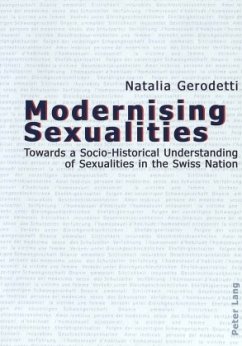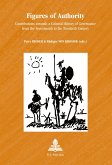This book examines constructions of sexualities and their intersection with nation-building between the 1890s and the 1930s. Using the unification of the Swiss Criminal Code as an investigative framework this book argues that sexualities and nation are intertwined through ideas and discourses about boundaries, their maintenance and their reproduction which, in the context of national fears and anxieties about degeneration, impacted on practices of inclusion and exclusion in the national imaginary.
The book contributes to emerging debates about gender, sexuality and nation, linking it with literature on eugenics and social politics. Explicitly interdisciplinary, the author examines the regulation of sexuality, gender, age and bodies by using an analysis of the legal, political, medical and «lay» discourses deployed in the discussions of the regulation of sexualities. Resulting are topical chapters on the regulation of same-sex desire, the age of consent and young people's sexuality, the construction of femininity and masculinity, the role of the women's social purity movement, the sexual regulation of «feebleminded» women in the context of eugenics, and the sexual politics of the nation.
The book contributes to emerging debates about gender, sexuality and nation, linking it with literature on eugenics and social politics. Explicitly interdisciplinary, the author examines the regulation of sexuality, gender, age and bodies by using an analysis of the legal, political, medical and «lay» discourses deployed in the discussions of the regulation of sexualities. Resulting are topical chapters on the regulation of same-sex desire, the age of consent and young people's sexuality, the construction of femininity and masculinity, the role of the women's social purity movement, the sexual regulation of «feebleminded» women in the context of eugenics, and the sexual politics of the nation.








